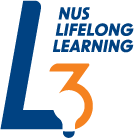Objectives
This course will expose students to the foundation concepts, case studies and applications, some mathematics behind data science models and algorithms. There will also be practical sessions for model development, training, validation and tests. Students will acquire new knowledge of data science techniques. The new knowledge from this course will enable predictions to be made about likely diagnoses, prognoses of health conditions and risks of adverse events. There will also be a mini-project and healthcare case studies to demonstrate the applicability of data science as a key enabler for improving the delivery of health services.
Who Should Attend
Doctors, Allied health professionals, Nurses, Non-clinical staff, Clinician scientists/researchers, Health care professionals
Entry Requirements
Bachelor's Degree in a relevant discipline such from the health or medical sciences; Relevant work experience in the fields of healthcare or research; Applicants from non-English speaking countries will be required to present documentary evidence of their competence in written and spoken English, such as TOEFL (above 85) or IELTS (7 or above).
Class Schedule
Days 1 to 3: Wed - Fri,10-12 Aug 2022
Days 4 to 5: Mon-Tue,12-13 Sep 2022
Lesson Delivery
a) Facilitated Learning: 20 hrs
b) e-learning: 4 hrs
c) Project: 8 hrs
d) Assessment: 4 hrs
e) Others: 4 hrs
Last updated: 18 April 2024


